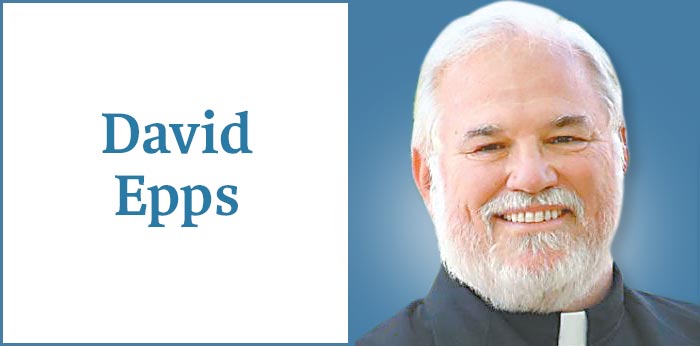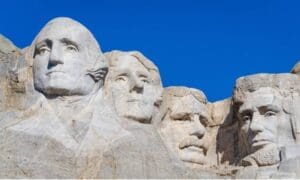There are some 206 bones in the human body with about half of those being in our hands and feet. The skeletal system is a miracle in many ways. If we didn’t have it, we would be no better off than a jellyfish. Our life, our world, would not exist as we have come to know it.
Yet, the skeletal framework, by itself, is incomplete. Oh, it helps us to survive. But to thrive, there are three more bones that we need to accumulate, protect, and nurture.
The first is the wishbone. Not that thing that we often find in our Thanksgiving turkeys. It’s more … philosophical. It is that which causes us to desire, to wish, to think, to dare to dream. Everything man made, without exception, began in someone’s mind. From the pointed stick, to the wheel, to the most magnificent building, to the spacecrafts that visit the galaxy — it all began as a dream … a wish, if you will.
And the less tangible things we enjoy, those began as dreams too. Every painting, every novel, every song, every film, every poem, every work of art. All of it came together in someone’s mind. It started out as a wish, grew into a dream, morphed into a vision, gave birth to plans and, eventually — reality!
The second necessary bone is the backbone. Not the spinal column. What we have is not a backbone but a collection of some 33 vertebrae. In common usage, “having a backbone” means to have courage. We often think that courage is something that we either have or do not have. And while some people are more cautious or timid and others are more reckless, anyone can have courage. In fact, in the Old Testament Book of Joshua chapter one, God commands old Josh to “be strong and courageous.”
Courage is not the absence of fear. Everyone has fear. As John Wayne put it, “Courage is being scared to death and saddling up anyway.” Perhaps some of the greatest examples of courage occurred on Sept. 11, 2001, when firefighters, paramedics, EMTs, and police officers, swallowed their paralyzing fear and headed into the Twin Towers or the Pentagon. Or when the passengers on Flight 93 stormed the cockpit of their doomed flight.
One U.S. Navy SEAL, in a book he authored on leadership, indicated that people fail not because of inability but because of fear. This fear, he said, comes in two forms: (1) The fear of failure and (2) fear of what others might think.
He described fear as a fog that, rather than to be shunned or avoided, should be embraced. He counseled the reader to “walk into the fog” because, like fog, fear has no real power unless we allow it to. Courage is not a feeling. Courage is an action, in spite of fear.
The third bone that is vital for a person to thrive is the funny bone. Everyone enjoys being around someone who has a good sense of humor. Sadly, this facet of humanity seems to be in short supply, at least in this nation.
People are too easily offended and all too willing to be offensive. Even most of the comedians these days are simply angry people who make jokes at the expense of others. Don Rickles was, perhaps, the first comedian to gain a following by insulting and berating others. Mostly, he was just a nasty man who always seemed to have an axe to grind.
His mantle has been taken up by hoards of men and women who seem to think that the more vulgar and demeaning they are, the funnier they are. Even a great many of the “most funny” videos on television are of people getting hurt. Why do we laugh at the pain of others? That is not humor. That is sociopathic behavior.
Yet true humor can lighten loads, ease anxieties, promote well-being, contribute to healing, and cause people to just enjoy life a bit more. During one of the most severe crisis of his life, President Ronald Reagan when he was shot, calmed a nation by smiling and remarking, “I forgot to duck.” Only much later was it revealed how close he came to death. A humorless person is not one to be admired but more to be pitied.
Even if someone doesn’t have all 206 bones because of a terrible tragedy, an accident, an act of war, or a severe illness, they can still possess the qualities of dreaming, courage, and humor.
Some of the most influential people are those who have suffered loss but have risen far above unfortunate circumstances. They, more likely than not, have incorporated these bones into their lives.
So, these three, the wishbone, the backbone, and the funny bone, are essential elements of a healthy society and of a healthy person. Make no bones about it!
[David Epps is the pastor of the Cathedral of Christ the King, 4881 Hwy. 34 E., Sharpsburg, GA between Newnan and Peachtree City (www.ctk.life). He is the bishop of the Charismatic Episcopal Diocese of the Mid-South which consists of Georgia and Tennessee and the Associate Endorser for the Department of the Armed Forces, U. S. Military Chaplains, ICCEC. He may contacted at [email protected].]













Leave a Comment
You must be logged in to post a comment.